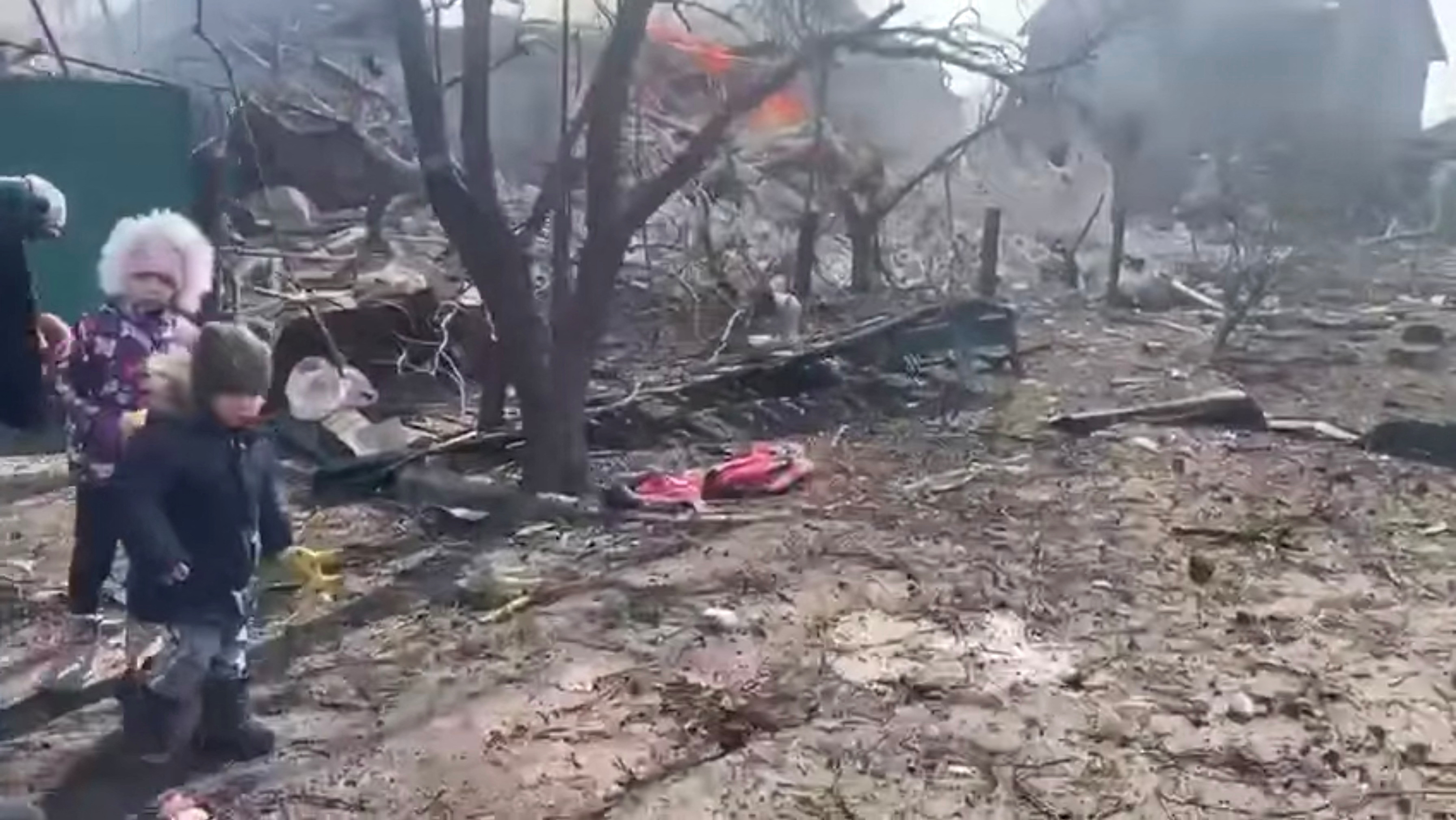Residents in Ukraine's Mariupol fighting for food, say Red Cross officials
Sign up now: Get ST's newsletters delivered to your inbox

A screengrab from video shows the aftermath of Russian artillery shelling on a residential area in Mariupol, where a rocket is said to have hit a house.
PHOTO: REUTERS
Follow topic:
GENEVA (AFP, NYTIMES) - Mariupol residents have become so desperate that some have fought each other for food during Russia's siege of the Ukrainian city, the International Committee of the Red Cross (ICRC) said on Thursday (March 10).
"People started to attack each other for food. People started to ruin someone's car to take the gasoline out," said Mariupol-based ICRC representative Sasha Volkov in an audio recording.
"Many have no water at all for drinking. All the shops and pharmacies were looted four to five days ago.
"Some people still have food but I'm not sure for how long it will last. Many people report having no food for children."
Ukrainian Member of Parliament Dmytro Gurin, who grew up in Mariupol and whose parents still live there, said they were using snow to drink water and trying to cook food on an open fire outside.
"Can you try to imagine this? Your parents, 67 and 69, are drinking snow and trying to cook on a fire outside in winter and there is continuous shelling," he told the BBC.
Aid agencies have said the port city in southern Ukraine is facing an "apocalyptic" situation, with no water, power or heat for more than a week as Russian forces bombard it.
Attempted evacuations of civilians have failed, with Ukraine and Russia accusing each other of ceasefire violations.
Volkov said a black market has emerged where Mariupol residents can get vegetables but not meat, while medical supplies were scarce.
His audio message also depicted scenes where civilians struggled to keep warm and safe from Russian shelling in claustrophobic shelters.
"People are getting sick already because of the cold. They have nowhere to go," he said.
Some ICRC workers had managed to collect food to last for a few more days from damaged or destroyed buildings.
"We have started to get sick, many of us, because of the humidity and cold... We tried to achieve hygiene standards as much as possible but not always actually possible," he added.
Marina Levinchuk said she received an alarming text message from the local authorities in the besieged city of Mariupol several days ago, before she decided to flee.
“If somebody dies in your family,” she said, recalling the message in her own words, “just put the body outside, cover it, tie up the hands and the legs and leave it outside.” “That’s what’s going on in Mariupol now,” she said.
“There are just bodies lying in the streets. There is no water, no heating, no gas,” she continued in a video call on WhatsApp Wednesday.
Authorities have only now started to collect and bury bodies which had been in the streets, the city's deputy mayor Serhiy Orlov told the BBC on Thursday. Officials estimated 1,300 civilians had been killed so far.
"There is no possibility of private graves, because of the high numbers and because of the continuous shelling. They are being put into mass graves," he said.
International outrage at Mariupol's deteriorating humanitarian situation grew on Wednesday after an air strike hit a children's hospital, killing at least three people including a young girl.
Ukrainian President Volodymyr Zelensky and the European Union have called the incident a "war crime".
But Russia has said the building was sheltering ultranationalist Ukrainian fighters, describing the attack as a "staged provocation" to stoke anti-Russian sentiment.
Taking the strategically located city would allow Russia to link up forces in the annexed Crimea peninsula with troops in the eastern Donbas region.

